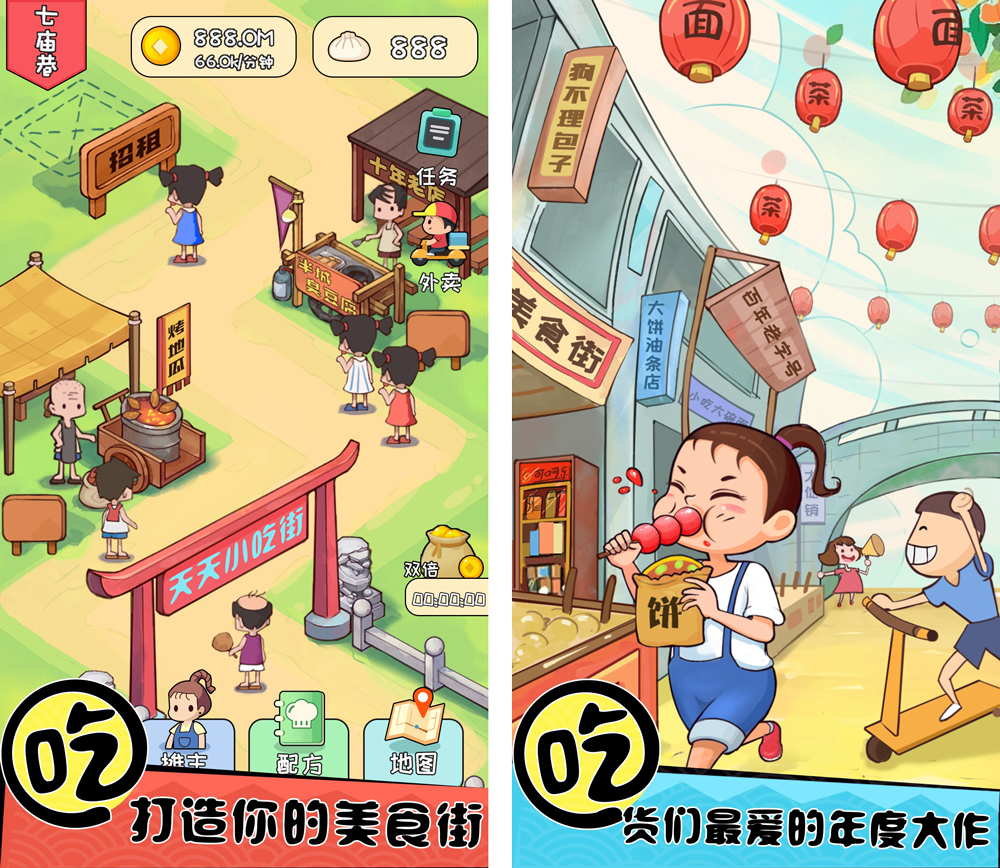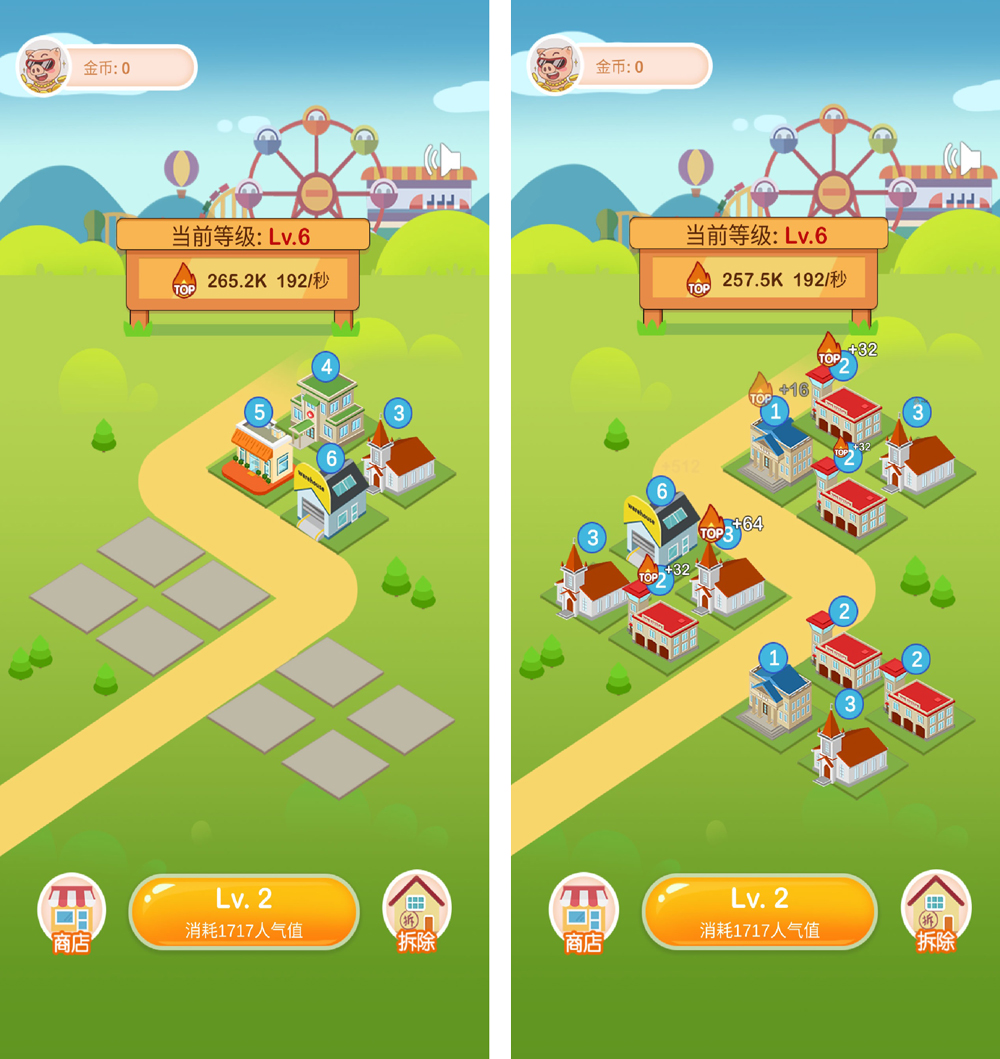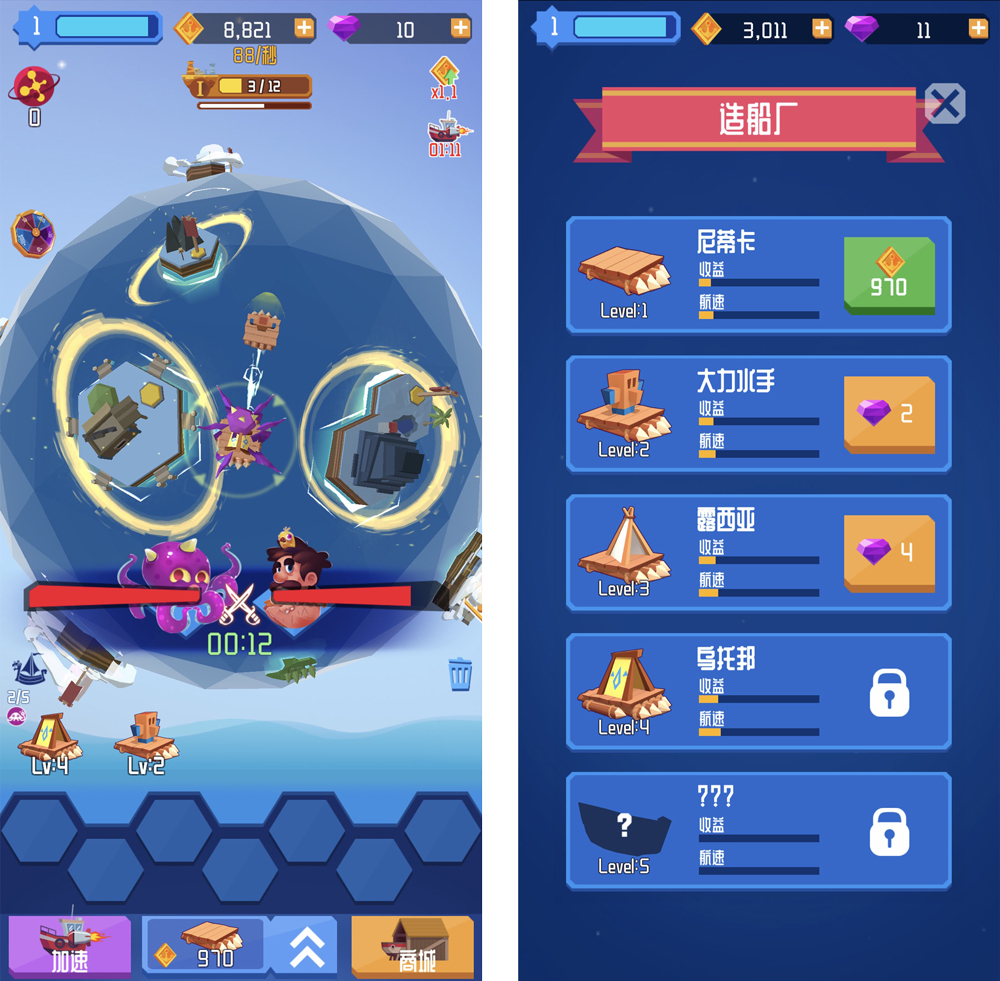ModooPlay: "Do you want to launch the game in China as soon as possible? Use only advertising monetization"
What is the difference between Western and Chinese games, what are the problems facing the hyper-casual games market, as well as the features of publishing in China, we talked with the CEO of the Chinese publisher ModooPlay.
Alexander Semenov, Senior Editor App2Top.ru : ModooPlay is a Chinese company that publishes Western games on the local market. Please tell me about her.

Gong Ping Ouyang
Gong Ping Ouyang, CEO of ModooPlay: ModooPlay is the daughter of the WebEye marketing company. It was launched in 2017. From the very beginning, we had, as they say, a “global vision”. We wanted to be a bridge between China and the rest of the world. As a result: we decided to publish foreign games in China and we were successful in this. We have promoted more than 50 games to the top of the Chinese tops and maximized their revenue.
You position yourself as a publisher of casual games. Why this particular direction? After all, hardcore titles are still the main hits on the local market.
Ouyang: The casual games market is now steadily growing. Low entry threshold, wide audience, established business model. The future of the segment looks promising. So why not?
It is important to note: our main priority is hyper—casual games. They are stylish and minimalistic. And for us, their visual simplicity is a big plus. As a rule, they do not appeal to cultural peculiarities, and this simplifies the transfer of the project to the local market.
There is also a massive demand for them, and they are mainly monetized through advertising. It is important.
You have just touched on the topic of cultural differences. What is the main difference between Chinese and Western games?
Ouyang: The biggest difference is obvious at first glance. It’s about the strongest differences in artistic styles, design.
However, something else is more important. Western games are more diverse and original. Chinese games, although developed with great attention to detail, are prepared in whole batches and are very similar to each other.
We are transferring creative Western works to the Chinese market, including wanting to inspire experiments of our colleagues — local publishers.
Cloning is really one of the big problems of the modern mobile games market. What other problems does the market have?
Ouyang: The main one is to shorten the life cycle of games.
For this reason, I believe that the purchase of users and monetization in general should be carried out as competently as possible.
In general, the focus in operating today should be shifted primarily to the involvement and retention of players.
Today it is necessary that marketing is accurate, advertising content is personalized. Developers should be able to make changes to the game design right on the go.

Street Food Tycoon
Returning to the hyper-casual genre. What do you like in this direction, and what on the contrary raises questions?
Ouyang: Hyper-casual games are best suited to the modern rhythm of life. They take up little space on smartphones, allow you to pass the time, escape from routine. This is exactly what the market demands.
Their problem grows out of their own dignity. Users quickly switch between titles. In the niche, projects have low loyalty and engagement.
Is publishing hyper-casual games very different from launching projects for other niches?
Ouyang: Hypercausal games easily become viral, they recapture costs faster. They also differ greatly in terms of demographics from games for other niches. There are much more women and adult players among the players in hyper casual games.
Yes, even with such titles, everything happens faster than with other games. Testing, launching and evaluating profitability take only a few days. If the performance of the game does not suit us, we immediately change something and try again. Just as fast. It doesn’t last long.
We have reached the most interesting, the indicators. What metrics should a game have in order, for example, for ModooPlay to take it for publication?
Ouyang: We usually take into account all the indicators, but the decisive ones for us are:
- retention (it makes sense to promote only mature projects with R1 more than 40%);
- ARPPU (strongly depends on the genre);
- CPI (must be lower than the estimated LTV).
If you have any specific project requirements that developers should keep in mind?
Ouyang: We test the gameplay, get an idea of the game and evaluate its growth potential. Each game has its own characteristics, so we don’t make any specific requirements.
What guarantees do you usually take upon yourself when concluding a contract?
Ouyang: After signing the contract, we take on everything from user purchases to monetization, promising a higher share of revenue than most other partners and competitors.

疯狂金币城
So you prefer to work as a publisher?
Ouyang: Yes, but we are also investing in development. Most importantly, we offer generous financial support and extensive financial resources to developers.
Under what conditions do you usually work? Revshara, fix, any other scenarios?
Ouyang: We have flexible conditions. Our goal is to create long—term relationships with talented teams on terms that both sides benefit from.
What type of monetization do you prefer?
Ouyang: We are interested in the balance between good revenue and high-quality user experience. That’s why we are in favor of interactive, immersive formats (video and interactive advertising).
What specific channels do you prefer?
Ouyang: We work with almost all major gaming stores, interactive streams, video channels, search engines and KOL platforms a la Baidu, TikTok, Bilibili.
We choose the promotion channel that shows itself better on test runs. For example, if the target audience of the game is young girls, then we tend to promote on Little Red Book.
How quickly does advertising fight back when promoting hyper-casual games?
Ouyang: Usually within a week, because we pay special attention to efficiency. One of our cases is the hyper—casual game Weeder Match. It reached the fourth place in the top of the most downloaded apps in Chinese iOS. The costs of its investment have recoiled in a few days.

Weeder Match
How long will it take in China to agree on the release of a game from a Western developer? Does the deadline change much if you act as a local publisher?
Ouyang: If there are no payments in any form in the game, then you only need to [get] the copyright number. The review takes at least 20 days for hyper-casual games, but in parallel we can do localization and adaptation of the project, so that the launch of the game on any main channel usually takes 2-4 weeks.
What do you usually recommend to change in the game before entering the Chinese market?
Ouyang: All game content, all assets must be adapted for China and verified. By the way, our localization experts can help with translation so that game texts are better perceived by native Chinese.
UI, gameplay and sounds, as a rule, should be changed based on the preferences of the Chinese audience and the requirements of state regulators. For example, after we replaced Vikings with Chinese pirates in Ship Merger, the retention of the game increased, and the cost of UA fell by 25%.

Ship Merger
Should monetization also be changed when adapting the game?
Ouyang: If the developer wants to launch the game in China as soon as possible, we strongly recommend monetizing the game exclusively through advertising. Otherwise, it may take a year or so to obtain the necessary licenses for publication.
I see, thank you very much for the interview.